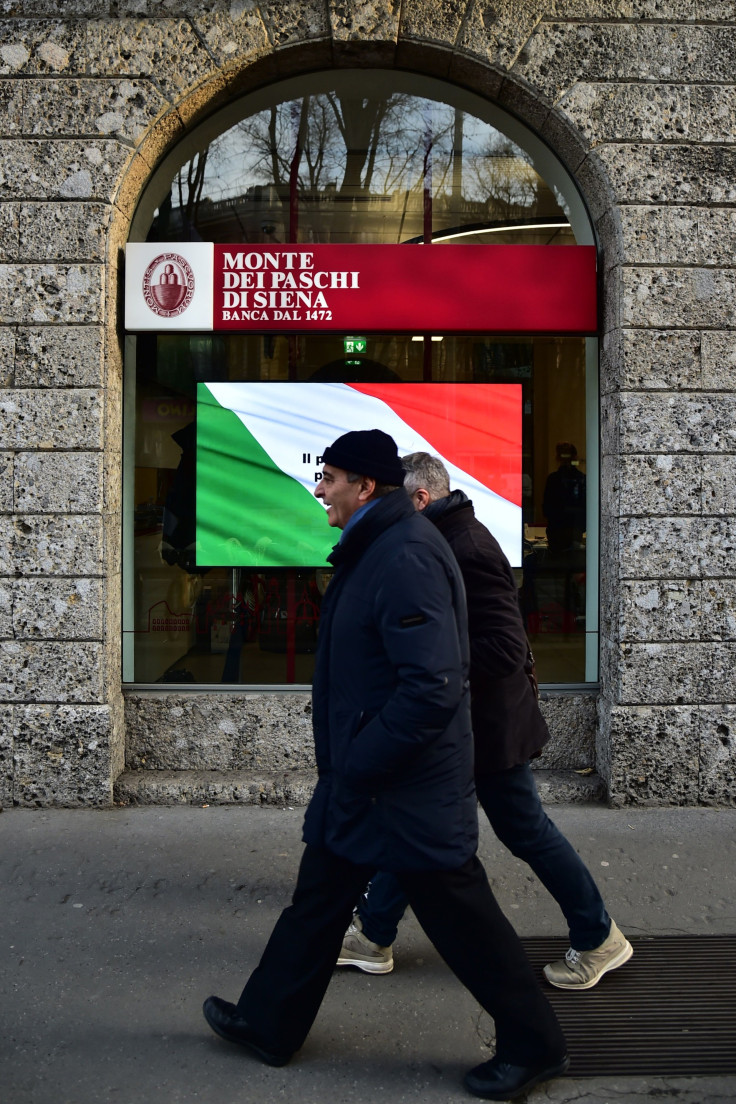Could Fintech And Blockchain Help Italian Banks?

Italy is still in the grip of a nationwide economic crisis that began 10 years ago. The European Commission recently allowed Italy to pour $19.4 billion into liquidating two major Italian banks, Banca Popolare di Vicenza SpA and Veneto Banca SpA, Bloomberg reported. Meanwhile, the government moved to nationalize control of Monte dei Paschi bank, instigating a relaunch that throws out $32.5 billion worth of bad loans.
“We are putting the worst behind us,” Finance Minister Pier Carlo Padoan said Wednesday. But many of the problems that created this loan crisis are still in place, experts say. Italy’s banking system is dominated by legacy institutions with protocols that predate the internet boom. Across the global marketplace, innovators are seeing artificial intelligence and blockchain solutions increase transparency and efficiency while reducing risk better than human bankers ever could. Could fintech help save Italian banks?
Read: Peek Inside The Fintech Arms Race Between Banks And Startups
“The major institutions of the Italian economy are very much obsolete,” Stefano Zamagni, an economics professor at the University of Bologna, told International Business Times. “They are starting to realize, even now, that they need to change their institutional structure.” Zamagni said Italy suffers from outdated bureaucracy and regional economic gaps between communities in the north and south.
Even so, Zamagni believes Italy is on the precipice of change. He said blockchain technology could help solve the endemic problems in Italy’s financial ecosystem. “In Italy, only one company dealing with blockchains has been born in so far. It is Reply, from Turin, that created the Reply Blockchain Competence Center,” Zamagni said. “I have reasons to believe that in few years this new way of organizing market transactions will diffuse.”
Roberto Ferrari, Chief Digital and Innovation Officer at Italy’s Mediobanca Group, told IBT in an email that he thinks AI softwares could also help Italian banks address the structural issues underlying the loan crisis. “ AI can greatly help credit and operations risk detection and management,” he said. “There are already some solutions brought up by fintech startups that show the way. They just need to be harnessed.”
Mediobanca Group already has diverse partnerships with tech companies like Deus Technology and Backbase to help manage risk assessment, investment banking and several other sectors of the business. The bank is also testing AI-powered Watson by IBM.
Read: Fintech Is Rebuilding Capital Markets, From AI to Crowdfunding Startups
But fintech partnerships are still relatively rare among major Italian banks, at least compared to industry leaders like the United Kingdom. “The Italian banking system is very fragmented, similarly to the US, so to have large effect these technologies need to have a broad adoption,” Ferrari said.
Business Insider reported in 2016 that globally, American and Italian banks face the greatest risk of fintech disruption. In Italy’s case, it was because the entire system lacked both conformity and flexibility, making banks too different for widespread accountability plus too big and entrenched for high-tech innovation. This makes traditional companies highly vulnerable to competition from tech startups.
Some nations, like China, are developing a national cryptocurrency to incorporate fintech directly into government infrastructures and eventually replace fiat currency. According to Cointelegraph, bitcoin prices have surged in the wake of the recent Italian bank bail out. It's true that Italy is home to a steadily growing cryptocurrency community, with at least 10 bitcoin ATM machines and a few merchants that accept bitcoin payments. The Blockchain Education Network Italia in Rome is made up of more than 200 members.
However, Ferrari wrote on LinkedIn the future lies with fintech partnerships to renovate the industry, not disrupt and replace it. Whatever challenges lie ahead, European partners like Germany appear committed to helping Italy use the Euro to dig its way out of this banking crisis.
© Copyright IBTimes 2024. All rights reserved.




















